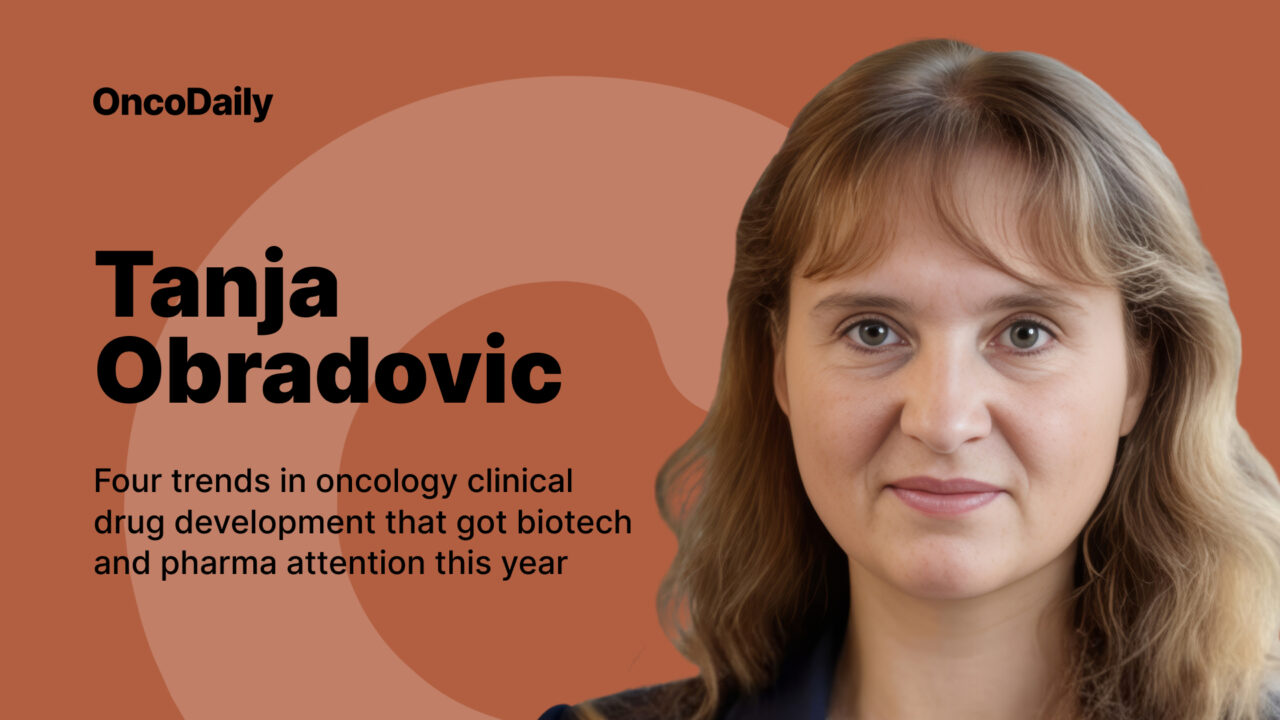Tanja Obradovic, Senior Advisor of Oncology Drug Development at HopeAI, Consultant, Oncology Drug Development at Arc Nouvel Clinical Development Consulting, and Oncology Medical Strategy Advisor at Mercurial AI, shared a post on LinkedIn:
“We are almost at the end of 2025, a year quite eventful for the cancer drug development community. Commenting on four major emerging trends.
Drug Modality and Changes in the Development Landscape
During the past several years, novel modalities, especially cell and gene therapies, antibody-drug conjugates (ADCs), and multi-specific antibodies, have entered the development arena, reaching 35% of oncology clinical trials, according to the IQVIA Institute report.
Still, CAR T-cell therapy trial for cancer starts have declined 15% from their peak in 2022, and that decline reflects poor showing in solid tumors trials, triggering numerous decisions of Biopharma to de-risk pipeline with the latest coming from Takeda last month.
Rise of China-Based Innovation
According to a recent Nature Index review (Nature 640, S58-S59, 2025), China has rapidly increased its clinical trial activity and is now considered the leading country for early-phase oncology trials, surpassing the number of ongoing US phase I studies by +1000.
This trend produced many attractive new assets and a large upswing in large Pharma deals, with China accounting for 28% of the total value of licensed drugs in 2024, a figure likely to be surpassed this year, together with an increase in M&A activity.
Deals mostly focused on monoclonal antibodies (mAbs) and antibody-drug conjugates (ADCs), and accounted for 89% of all molecule types, with the total deal value being three times that of similar deals licensed out from the US, according to GlobalData.
Artificial Intelligence Shapes Development
2025 is the year when we have seen major advances in artificial intelligence (AI) capabilities that already started to shape Biotech and Pharma. Drug discovery process, early development, and manufacturing are undergoing major changes with major investments and partnerships between Pharma and tech giants such as those of Lilly and J&J with Nividia.
Significant AI influence upon clinical development is still coming beyond understanding real-world data as a supportive information and efficiencies in processes such as document creation and management. Numerous innovative tech companies are moving toward developing smart AI tools that critically impact decision making on clinical trials and pipeline, such as trial simulations, endpoint evaluation, deep learning applications, to management of failure risk.
In addition, with rise of ‘digital twins’ trials driven by AI to enhance impact upon real-world patients (Nature Medicine volume 31, pages457–465, 2025), the future of AI in oncology clinical development is further growing toward a critical component of strategy.
Regulatory Landscape in the USA
Based on FDA positions last year, we can expect expansion in size of early trials to accommodate explorations of multiple doses, deeper understanding of safety profile and efficacy contributions, especially of combination trials with the need to demonstrate overall survival benefit.
This increase in complexity will drive a very strong need for a better trial strategy for both scientific merit as well as operational excellence according to just published Clinical Trials Institute article by the University of Wisconsin-Madison School of Medicine and Public Health.
In contrast to increased clinical hurdles, there is likely positive impact upon new drug candidate entry into Phase I since preclinical package may omit costly and time-consuming animal studies as communicated earlier this year. Biosimilars arena may also see significant positive change coming from FDA with new guidance issued this month to simplify studies and reduce unnecessary clinical testing.
As we face almost end of 2025 oncology community is living in truly dynamic times.”
More posts featuring Tanja Obradovic.


